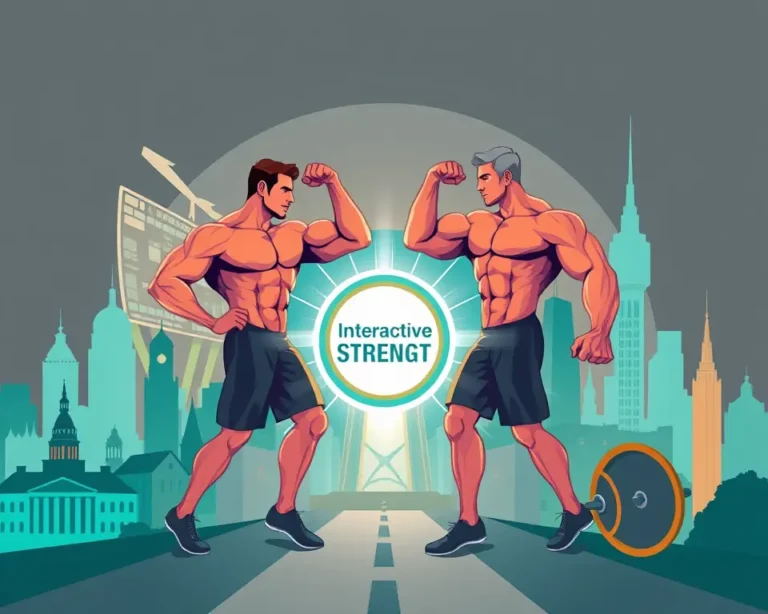The connected fitness landscape is heating up, and a recent transatlantic merger could create a significant player in the German market. Interactive Strength Inc. (TRNR), the company behind the CLMBR and FORME fitness equipment brands, has announced a definitive agreement to acquire Sportstech Brands Holding GMBH, a leading connected fitness company based in Germany. But can this merger truly create a dominant force in Germany’s increasingly competitive fitness sector?
The Allure of the German Fitness Market
Germany represents a substantial opportunity in the global fitness market. A recent report projected that the German fitness market is expected to reach €6.5 billion (approximately $7 billion USD) by 2027, driven by increasing health awareness and technological innovation. This growth is fueled by several factors:
- Rising health consciousness: Germans are increasingly focused on health and well-being, leading to greater participation in fitness activities.
- Digital revolution: Advancements in wearable technology, VR workouts, and AI-powered training programs enhance engagement and accessibility.
- Evolving gym landscape: Traditional gyms face competition from niche studios offering specialized services, catering to diverse preferences.
Furthermore, Germany is a key player in the fitness tracker market, projected to lead the European market in revenue by 2030. This underscores the growing demand for technology-driven fitness solutions in the country.
The Merger: Interactive Strength and Sportstech
Interactive Strength’s acquisition of Sportstech is a strategic move to expand into the European market. Sportstech, founded in 2012, sells indoor fitness equipment like the sBike Lite, sWalk Treadmill, and sTread Fold across Germany, Austria, Switzerland, France, and Spain. The deal is expected to close in early April 2025.
Key benefits of the acquisition for Interactive Strength:
- European Expansion: Sportstech has an existing customer base and distribution network in key European markets, providing Interactive Strength with a foothold in the region.
- Revenue boost: The combined company projects pro forma revenues exceeding $50 million in 2025.
- Experienced team: Sportstech’s founder and CEO, Ali Ahmad, will join the TRNR board, bringing valuable experience and leadership to the combined entity.
- Nasdaq Listing Benefits: TRNR’s equipment, distribution, and finance experience, as well as its Nasdaq listing, represent the resources Sportstech needs to grow its fitness community.
Interactive Strength’s CEO, Trent Ward emphasized the strategic nature of the deal, stating that it will significantly enhance the combined company’s ability to serve consumers and businesses worldwide.
Sportstech: A Strong Foundation
Sportstech has established itself as a significant player in the German connected fitness market. The company focuses on making fitness accessible to everyone, offering a range of indoor fitness equipment and app-based content.
Key strengths of Sportstech:
- Established brand: Sportstech is recognized as Germany’s largest connected fitness equipment company.
- Profitable Business: Sportstech is a profitable entity with over $40 million in revenue.
- European reach: The company serves customers in Germany, Austria, Switzerland, France, and Spain.
- Mission-driven: Sportstech is focused on helping everyone achieve their fitness goals.
Challenges and Competition in the German Fitness Market
While the merger presents a significant opportunity, Interactive Strength and Sportstech will face several challenges in the competitive German fitness market.
Key competitors in the German fitness market:
- RSG Group: One of the world’s largest fitness companies with brands like McFit, Gold’s Gym, and John Reed.
- EGYM: A global fitness technology company that provides equipment and corporate wellness solutions.
- BestFit Group: One of the most successful and fastest-growing fitness groups in Germany, created from the merger of Jumpers Fitness and All Inclusive Fitness.
- FitX: A large fitness chain in Germany.
- Clever fit: Another prominent fitness chain.
- LifeFit Group: Another key player in the German fitness landscape.
Other challenges include:
- Intense competition: The German fitness market is highly competitive, with numerous established players and new entrants vying for market share.
- Changing consumer preferences: Fitness consumers are increasingly demanding personalized and technology-driven experiences.
- Economic factors: Economic uncertainty could impact consumer spending on fitness products and services.
The Role of Technology
Technology is playing an increasingly vital role in the German fitness market. Connected fitness equipment, wearable devices, and mHealth apps are gaining popularity among consumers.
Key technology trends in the German fitness market:
- Fitness trackers: Devices that monitor activity levels, heart rate, and sleep patterns.
- Smartwatches: Multifunctional devices that combine fitness tracking with communication and entertainment features.
- mHealth apps: Mobile applications that provide access to fitness programs, personalized training plans, and remote consultations with healthcare professionals.
- Virtual reality (VR) workouts: Immersive fitness experiences that simulate real-world environments.
- AI-powered training: Personalized training programs that adapt to individual fitness levels and goals.
Interactive Strength and Sportstech will need to continue to innovate and invest in technology to stay ahead of the competition.
Can This Merger Create a German Fitness Giant?
The merger between Interactive Strength and Sportstech has the potential to create a significant player in the German connected fitness market. The combined company will benefit from Sportstech’s established brand, European reach, and profitable business, as well as Interactive Strength’s innovative fitness equipment and Nasdaq listing.
However, success is not guaranteed. The combined company will face intense competition from established players like RSG Group and EGYM, as well as the challenge of keeping up with rapidly evolving technology and changing consumer preferences.
To succeed, Interactive Strength and Sportstech will need to:
- Leverage synergies: Integrate their operations and technologies to create a seamless customer experience.
- Invest in innovation: Continue to develop new and innovative fitness products and services.
- Focus on personalization: Offer personalized training programs and experiences that cater to individual needs and preferences.
- Build a strong brand: Create a strong and recognizable brand that resonates with German consumers.
- Expand reach: Continue to expand their reach in Germany and other European markets.
If Interactive Strength and Sportstech can successfully execute these strategies, they have a strong chance of becoming a major force in the German connected fitness market. The merger represents a bold step towards creating a new fitness giant, but the road ahead will require careful planning, execution, and a relentless focus on meeting the needs of German fitness consumers.







